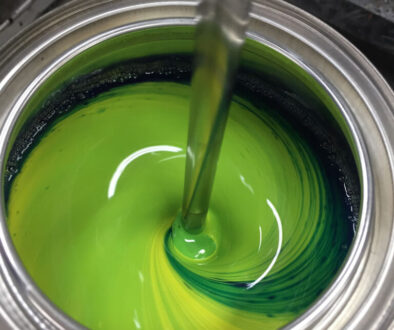VOCs: Volatile Organic Compounds

Volatile organic compounds, or VOCs, are organic chemicals that easily turn to vapor at ordinary room temperature due to their high vapor pressure. These chemicals have a low boiling point, which causes a large number of molecules to sublimate or evaporate from their solid or liquid form and begin to enter the surrounding air, a characteristic known as volatility. A good example would be formaldehyde, which easily evaporates from paint due to its boiling point of only -2 degrees Fahrenheit.
There are large assortment of various VOCs, and their presence is rather all around us. The list includes both man-made synthetic and naturally occurring chemical compounds. Most random scents or odors are actually that of a volatile organic compound. VOCs play a crucial role in communication among plants, and communication from plants to animals. Take special precaution, as some VOCs are potentially dangerous to human health and cause harm to the environment. Harmful VOCs are regulated by law, especially in an indoor environment where concentrations in the air are the highest. Volatile organic compounds that are harmful to the human body aren’t usually acutely toxic, but compounded exposure to them can cause long-term health effects.
In the United States, volatile organic compound are legally defined individually under the various codes and laws under which they are regulated. Other government agencies investigating or advising about VOCs may provide other definitions to the public. The Environmental Protection Agency (EPA) controls the regulation of VOCs in the water, land, and air, while the Occupational Safety and Health Administrations (OSHA) regulates VOC exposure in the workplace.
Anthropogenic, or man-made sources emit roughly 142 teragrams of carbon every year in the form of volatile organic compounds. One of the biggest sources of man-made VOCs come from coatings, particularly paint and protective coatings. Many polymer coatings required caustic solvents in order to spread a protective or decorative film. Gellner Industrial has been on the cutting edge of the new shift towards the use of more environmentally friendly, water based acrylic polymers. Our line of specialty acrylic resins and polymer coatings are used in applications from the graphic arts to industrial coatings. Formulated with a precise blend of water based acrylic polymers, these resins provide superior results when used in both water-based coatings and printing inks. Our specialty resins are optimal for water-based coating applications used in various industries. Keeping with our environmentally-friendly philosophy, Gellner Industrial’s specialty acrylic resins and polymer coatings can be used to replace harsh chemical solvents in water based coatings. This helps support the production of low-VOC coatings that meet environmental regulations without sacrificing quality or performance. Contact us at info@gellnerindustrial.com or 570.668.8800 for inquiries.


